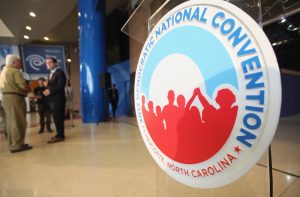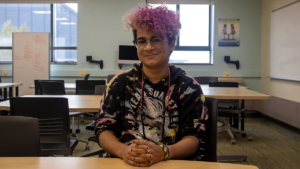A brazen new institutional assault on Indigenous rights by a Supreme Court Justice is underway, threatening to undo fundamental constitutional protections of Brazil’s Indigenous communities
September 19, 2024 | Ana Carolina Alfinito and Paula Vargas | Eye on the Amazon
In August, Justice Gilmar Mendes of Brazil’s Supreme Court established a “Special Commission” to define the nature and limits of Indigenous rights. However, during its second meeting on August 25, representatives of the Association of Brazil’s Indigenous Peoples (APIB) announced their withdrawal from the commission. They argued that the forum had become less about genuine dialogue and more about pressuring the Indigenous movement to compromise their fundamental rights under the influence of economic interests seeking access to Indigenous lands.
Justice Mendes described the commission as an “innovative experiment” in constitutional jurisdiction and called it an important step in advancing new forms of conflict resolution. However, Indigenous lawyer Kari Guajajara, representing the Coordination of Indigenous Organizations of the Brazilian Amazon (COIAB), argued that the initiative will be remembered as the single largest act of violence against Brazil’s Indigenous communities in recent memory.
Justice Mendes’ Special Commission was established during a critical time for Indigenous rights, which are facing a severe crisis. The promise of broad recognition of Indigenous ancestral lands, guaranteed by Brazil’s 1988 Constitution, has nearly come to a halt. Anti-Indigenous groups have gained control of Brazil’s Congress and are pushing through regressive legislation and constitutional changes that threaten any hope for the demarcation of Indigenous territories.
This recent assault on Indigenous rights in Brazil is also an attack on the Amazon, and it will directly fuel the devastating fires already ravaging the region, threatening the rainforest, global climate stability and our collective wellbeing. It is a direct attack on our shared future for the sake of short-term profits for agribusiness and extractive industries. The world should be paying close attention to the danger facing Brazil’s constitutionally-protected Indigenous rights and what must be done to stop these attacks.
Creating political barriers to land demarcations is not only an assault on Indigenous rights. It also threatens to worsen the already explosive rise in Amazon forest fires, which have reached a 20-year high. These fires are spreading across well-preserved Indigenous territories that are increasingly trapped in legal limbo.
In 2023, debates over the Marco Temporal (“Time Limit”) thesis – which set an arbitrary cutoff date for the recognition of Indigenous land rights – led to a standoff between Brazil’s Congress and Supreme Court. In September 2023, a broad majority of the Court ruled the Marco Temporal thesis unconstitutional, stating that such a time limit is not a valid constitutional standard for determining Indigenous land rights.
In a confrontational response, Congress swiftly passed Federal Law 14.701/2023, which enshrines the Marco Temporal thesis into federal legislation and significantly weakens Indigenous land rights. The law allows the construction of military bases and infrastructure projects on Indigenous lands without guaranteeing the Free, Prior, and Informed Consent of affected communities. It also creates additional obstacles to the official recognition of Indigenous lands.
More recently, in response to reaffirmation that the Marco Temporal thesis was ruled unconstitutional, the congressional agribusiness caucus introduced a new legislative strategy: a constitutional amendment that would embed the disputed thesis into the Constitution itself. This move would permanently roll back Indigenous rights, severely jeopardizing the future of Brazil’s Indigenous territories, including the vast forests stewarded by Indigeous peoples across the Amazon.
“Pacifying” Indigenous resistance
In late December 2023, three lawsuits were filed requesting that the Supreme Court rule on the constitutionality of Federal Law 14.701/23. All three cases were assigned to Justice Gilmar Mendes, who has a well-established history of favoring agribusiness elites and opposing Indigenous rights. Instead of fulfilling the court’s duty to conduct a judicial review of the legislation, Justice Mendes argued that the case was too complex for “traditional” constitutional mechanisms. He then created a Special Commission, composed of representatives from the government, the agribusiness sector, and Indigenous organizations, claiming it could “pacify” the conflicts over Indigenous land rights.
The “pacification” of land conflicts sought by Mendes amounts to the suppression of Indigenous demands for the enforcement of their rights. The Special Commission is not focused on upholding existing constitutional rights but rather on redefining the terms of those rights.
In simple terms, the Supreme Court is relying on an ad hoc commission, largely composed of anti-Indigenous groups (including representatives from agribusiness and federal and municipal governments), to reach a consensus on the Indigenous rights guaranteed in Brazil’s Constitution and draft legislative proposals to regulate them.
The commission has been promoted as an “innovative forum for conflict resolution,” where opposing sectors with diverging interests would supposedly come together on equal footing to resolve their longstanding differences. However, this equal footing is an illusion. Instead, the commission’s so-called “democratic” decision-making process gives its anti-Indigenous majority overwhelming power to drastically undermine Indigenous rights.
By creating this commission, the Supreme Court is effectively relinquishing its constitutional authority over Indigenous rights and transferring that power to an ad hoc body, which is heavily biased in favor of government and agribusiness interests. This contrived forum may not only attempt to overturn the Supreme Court’s ruling against the Marco Temporal thesis but also propose new policies, such as opening Indigenous lands to industrial mining.
Additionally, Justice Mendes allowed the unconstitutional Marco Temporal thesis to be enforced while the Special Commission deliberated, effectively freezing Indigenous land demarcations. As a result, disputes over these lands have intensified in recent months, leading to a sharp increase in violence against Indigenous peoples across Brazil. The situation is particularly dire in Mato Grosso do Sul, where Guarani-Kaiowá groups have been repeatedly attacked by militias hired by farmers who are, in reality, land-grabbers.
Institutional violence
The brutal violence occurring in Brazil’s Indigenous territories is compounded by the institutional violence imposed by the Supreme Court’s Special Commission. The unequal power dynamics of the commission became apparent at its first meeting on August 5. Before the meeting even began, Maurício Terena, coordinator of APIB’s legal department, was barred by security from entering the Supreme Court. During the meeting, Indigenous representatives were informed that if the commission failed to reach a consensus, decisions would be made by majority vote. Since Indigenous peoples are a minority in this forum, they risk having their rights once again dismantled by a body dominated by an anti-Indigenous majority. The representatives were also told that if they chose to leave the commission, deliberations would continue without them, and Indigenous rights would be discussed in their absence.
According to the judge chairing the meeting, the commission represented a “unique opportunity” for Indigenous groups to be heard, and if they chose to leave, it would be interpreted as their agreement with the Marco Temporal thesis. “Don’t you always complain that we don’t hear you?” he asked. “Well, this is your chance to be heard,” he ironically added. The same judge insisted that Indigenous representatives should stay because they “really had nothing to lose” by participating. This remark was especially difficult to accept, given the recent attacks against Indigenous groups, who stand to lose everything as a result of the commission’s decisions.
There is no equal footing in this so-called “novel” forum, which closely resembles the old institutions that have long silenced Indigenous voices. Time and again, Indigenous representatives reminded the commission of the need to respect the consultation protocols of all Indigenous peoples whose rights could be affected, and emphasized the importance of an intercultural dialogue that acknowledges Indigenous decision-making processes and self-determination.
Sadly, these pleas were ignored by the Chair, who dismissed Indigenous demands. According to Kari Guajajara, legal coordinator of COIAB, who spoke for the organization at the commission’s first meeting:
“We Indigenous peoples have so much experience and so much to teach in terms of how to carry out intercultural dialogue. The fact that we decided to sit at the table with the Commission even though our communities are being attacked, even though so many Indigenous peoples have said that they do not want this appeasement to happen, shows how much we want meaningful dialogue to happen. But if this Commission goes on to function as it has today, this will go down in history as one of the largest instances of violence against Indigenous peoples in the history of Brazil”.
APIB withdraws from the Commission. What comes next?
During the second meeting of the Special Commission on August 25, APIB decided that it was no longer possible for them to continue participating. The Indigenous movement had already agreed internally that they would withdraw if the rules governing the forum were not changed and if the Supreme Court continued to refuse the suspension of Federal Law 14.701/2023 while the commission was in place. Neither of these conditions were met. During the second meeting, the main terms were reaffirmed: the Marco Temporal thesis would not be suspended, decisions would be made by majority vote, and the process would proceed even without the participation of the Indigenous movement.
As a result, APIB announced its withdrawal from the commission and called for its closure. “The decision to withdraw from the commission was made after extensive consultations with organizations and leaders from our seven base regions,” said Kleber Karipuna, APIB’s Executive Coordinator. To formalize their departure, leader Mariazinha Baré read an open letter signed by APIB and regional Indigenous organizations.
The current legislative and judicial actions highlight a broader and more insidious threat to Indigenous rights and environmental protection in Brazil. The continued push for the Marco Temporal thesis and other pro-extractive policies signals an impending rollback of decades of progress. Indigenous communities, along with their allies and organizations like Amazon Watch, are mobilizing to resist these threats and advocate for stronger protections and recognition of Indigenous rights and territories.
As Brazil stands at a critical crossroads, the support and vigilance of the international community are essential to ensuring that Indigenous rights are upheld and the Amazon rainforest is preserved for future generations.




